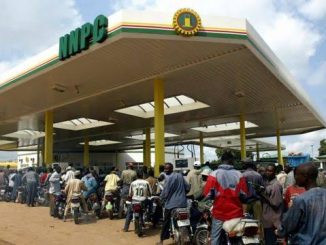
Africa’s biggest economy, oil-rich Nigeria, slipped into recession for the second time in four years.
Hit by both the coronavirus pandemic and falling oil prices, official figures revealed the economic status of Nigeria, on Saturday.
Nigeria’s economy was last in recession in 2016, its first in more than two decades. While it emerged in 2017, growth since then has been sluggish.
According to the country’s National Bureau of Statistics (NBS), the third-quarter 2020 real GDP shrank for a second consecutive quarter by 3.62%.
ALSO READ: #EndSARS: Army went to Lekki tollgate with blank, live bullets, General tells Judicial Panel
“Cumulative GDP for the first 9 months of 2020 therefore stood at -2.48 percent,” it added.
The agency blamed the recession on the falling oil prices and the effects of the coronavirus epidemic.
GDP related to oil shrank by 13.89%, compared to 6.63 in the second quarter, said the third-quarter report.
Non-oil GDP shrank 2.51% over the same period, compared to 6.05 percent in the second quarter.
Already in the second quarter, Nigeria’s economy contracted by six%.
Nigeria’s economy was last in recession in 2016, its first in more than two decades. While it emerged in 2017, growth since then has been sluggish.
The International Monetary Fund has forecast a 5.4% drop in Nigeria’s GDP this year. The government has said the economy may shrink by as much as 8.9%.
Nigeria is Africa’s top oil producer, normally accounting for an average output of two million barrels per day. But the effects of the COVID-19 pandemic and low oil prices have cut production to around 1.4 million barrels.




